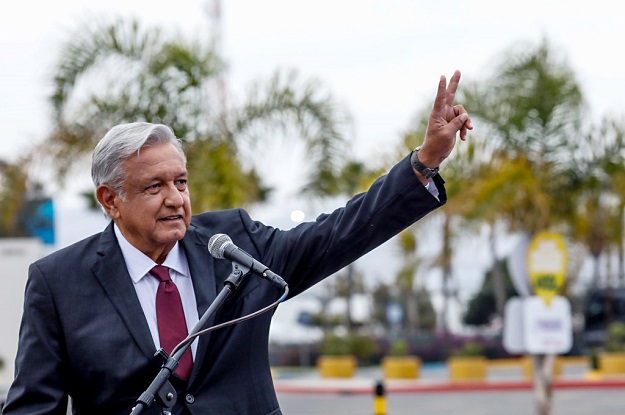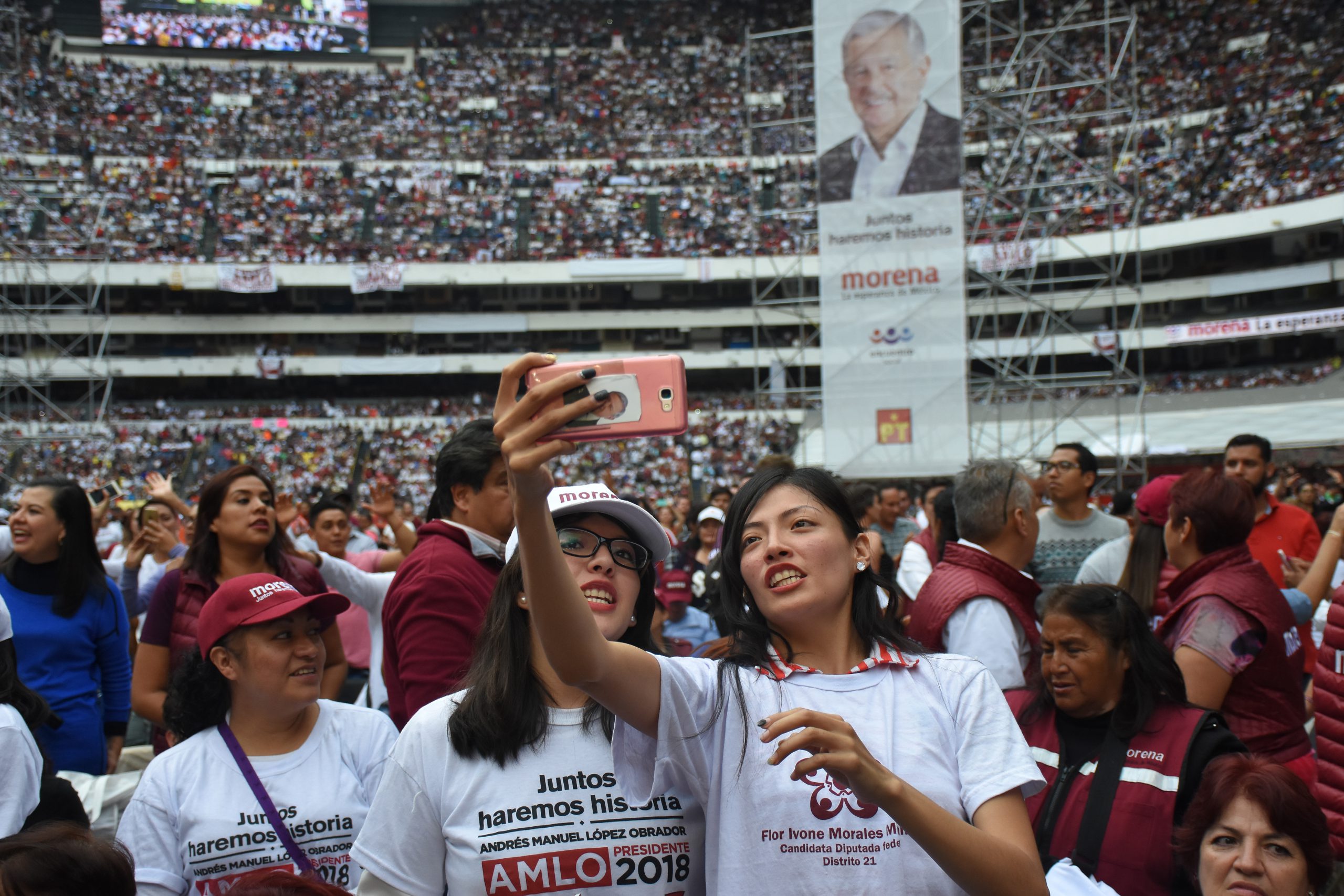Correction appended below
TIJUANA, Mexico – If candidates were judged by debate performances alone, Andrés Manuel López Obrador might be a long-shot to win Mexico’s presidency on July 1.
At a town hall-style debate held here on Sunday night, AMLO, as he is widely known, appeared most comfortable when it came to belittling his opponents. (At different points he referred to Ricardo Anaya, his nearest rival, as a “phony,” “little scoundrel” and “Richie Rich.”) However, he did little to quell fears that his populist rhetoric could translate into divisive leadership if he’s elected.
López Obrador was in many cases unable or unwilling to provide much detail about his approach to trade, border security and immigration, the ostensible themes of the debate. But that may not matter – and in fact, it may help him. Just as in other recent campaigns around the world, including the United States, what may look like a lack of policy savvy to some observers appears to others as proof the candidate is “not a normal politician” – someone from outside the system.
Most polls suggest that’s exactly what voters want, at a time when Mexico is suffering from a 16 percent spike in homicides this year, outrage over widespread corruption and an unspectacular economy.
“AMLO is speaking to a constituency that the establishment has ignored,” Viridiana Rios, a professor of government and a global fellow at the Wilson Center’s Mexico Institute, told AQ. “They distrust the intellectual elite because the policies implemented by them until now haven’t led to much.”
“Voters are less affected by AMLO’s debate performances because they already know who AMLO is,” she added. “He’s been campaigning for 12 years now.”
The latest polling puts him up about 15 percentage points, although it’s worth noting that López Obrador has been here before. In 2006 he lost the presidential election despite occasionally leading polls by 10 points or more. He lost again in 2012 to the current president, Enrique Peña Nieto.
Yet this time feels different for many supporters, in part because López Obrador is faring better in parts of the country that, in the past, had served as a bulwark against his rise.
Northern Mexico is a case in point. The relatively prosperous region has traditionally proven less susceptible to López Obrador’s populist charms. Baja California, where Tijuana is the largest city, has been a bastion of Anaya’s PAN party since 1989, when it became the first state to elect a governor from a party other than the ruling PRI. In 2006, López Obrador lost the state by more than 20 points.
But a recent El Financiero poll suggests that, when taken as a whole, northern Mexico has shifted in López Obrador’s direction. Overall he leads Anaya there by 11 points. Though still the second choice in many parts of the region, his improved performance speaks to the degree to which many voters are eager for change – whatever form it may take.
“A good part of AMLO’s growth is due to the flight of PRI supporters,” said Macario Schettino, a political analyst and professor at the Monterrey Institute of Technology and Higher Education. “They realize that people no longer like the PRI and they’ve switched to Morena (López Obrador’s party).”
López Obrador appears to be aware of what he has to gain. At Sunday’s debate he repeated his pledge to double the minimum wage along the border. He also frequently says he’ll put an end to “gasolinazos,” large spikes in gas prices associated with market reforms that last year led to sometimes violent protests. The rises are particularly irksome in border cities like Tijuana, where gas prices are often higher than in the U.S. just a few miles away.
These proposals on their own aren’t enough to explain López Obrador’s growing strength here. Anaya has made similar promises, offering to increase the minimum wage and undo a deeply unpopular increase in the border-area value added tax, which rose 5 percent to come in line with the rest of the country as part of a fiscal reform in 2014. Both López Obrador and Anaya have said that wage increases should be part of ongoing NAFTA negotiations with the U.S. and Canada.
But neither Anaya nor José Antonio Meade, a former minister and the PRI’s candidate for president, appear able to speak credibly to voters who are fed up with the rising violence and a string of corruption scandals that have dogged the current administration. More than anything – including the specter of U.S. President Donald Trump, invoked frequently at Sunday’s debate – López Obrador’s supporters point to this frustration as their reason for voting for him.
“We’re just tired, tired of injustice” said Teresa López, a López Obrador supporter from Tijuana who turned out to cheer her candidate at the entrance to the debate hall. “López Obrador is going to make everything better.”
Not all of AMLO’s voters are so assured. Gonzálo Ibarra, who has driven a taxi in Tijuana for the last 10 years, said he’d vote for López Obrador, but only as the least bad option.
“If he turns out to be like everyone else, I think there’s going to be an armed revolution,” Ibarra said. “Hell, I’d think about joining in.”
A previous version of this article incorrectly referred to Tijuana as the capital of Baja California.
—
Russell is AQ’s correspondent in Mexico City









